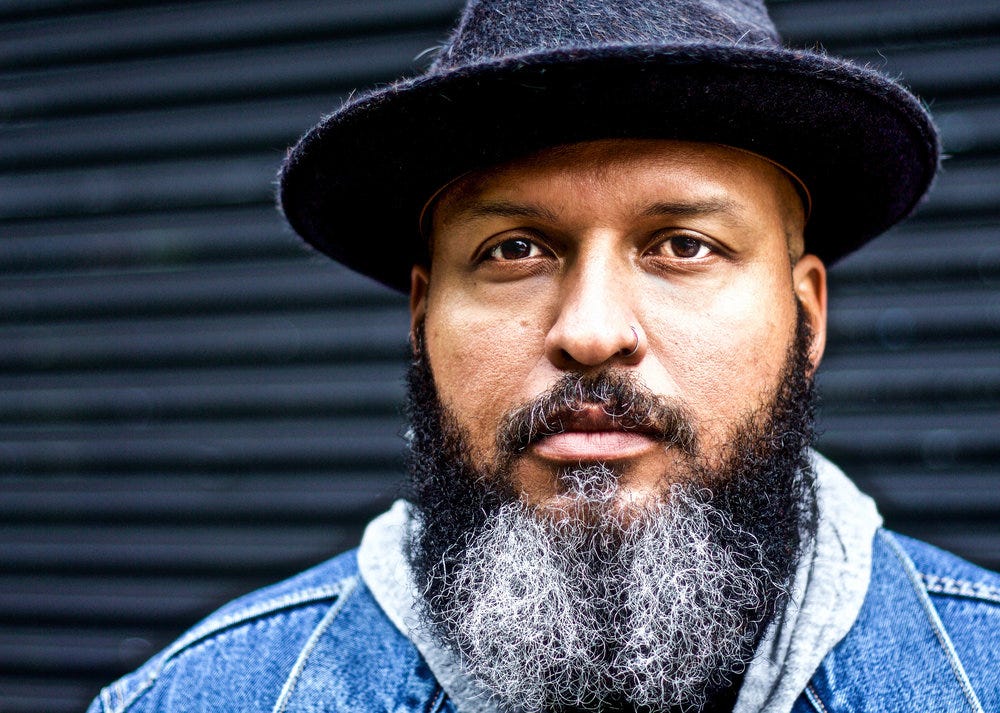Hello Croissants,
Hope everyone is having a lovely week. It’s been so dreary here in Nashville. Between cloudy days and all of the political insanity, it’s been hard to keep my spirits above water. I am realizing as I type this that I have not eaten a croissant in some weeks. PROBLEM DIAGNOSED!!! I DO have hope that sunshine will be arriving soon and Spring can remind us that all is not yet lost (I am now sounding like my father’s Passover Haggadah which he calls “A Humanist Liberation Festival” because he is a staunch atheist.
Speaking of loss, I read this poem at Art Hoe school this week, and it took my breath away. It feels like cheating to share someone else’s brilliant writing on Substack, but I feel that you all must read this!
Variation on a Theme by Elizabeth Bishop
By John Murillo
Source: The New York Times Magazine, 2021
Start with loss. Lose everything. Then lose it all again.
Lose a good woman on a bad day. Find a better woman,
then lose five friends chasing her. Learn to lose as if
your life depended on it. Learn that your life depends on it.
Learn it like karate, like riding a bike. Learn it, master it.
Lose money, lose time, lose your natural mind.
Get left behind, then learn to leave others. Lose and
lose again. Measure a father’s coffin against a cousin’s
crashing T-cells. Kiss your sister through prison glass.
Know why your woman’s not answering her phone.
Lose sleep. Lose religion. Lose your wallet in El Segundo.
Open your window. Listen: the last slow notes
of a Donny Hathaway song. A child crying. Listen:
a drunk man is cussing out the moon. He sounds like
your dead uncle, who, before he left, lost a leg
to sugar. Shame. Learn what’s given can be taken;
what can be taken, will. This you can bet on without
losing. Sure as nightfall and an empty bed. Lose
and lose again. Lose until it’s second nature. Losing
farther, losing faster. Lean out your open window, listen:
the child is laughing now. No, it’s the drunk man again
in the street, losing his voice, suffering each invisible star.
OOF.
Learn to lose as if your life depended on it. Learn that your life depends on it.
I looked up the author of “Variations on a Theme” and John Murillo is the head of the creative writing program and seems to have won more awards than will fit in a reasonable biography. I’m going to be checking out some of his books for sure.
I was also curious which Elizabeth Bishop poem Murillo was inspired by, and the NYT Magazine references this one:
One Art
Elizabeth Bishop
Source: Poets.org
The art of losing isn’t hard to master;
so many things seem filled with the intent
to be lost that their loss is no disaster.
Lose something every day. Accept the fluster
of lost door keys, the hour badly spent.
The art of losing isn’t hard to master.
Then practice losing farther, losing faster:
places, and names, and where it was you meant
to travel. None of these will bring disaster.
I lost my mother’s watch. And look! my last, or
next-to-last, of three loved houses went.
The art of losing isn’t hard to master.
I lost two cities, lovely ones. And, vaster,
some realms I owned, two rivers, a continent.
I miss them, but it wasn’t a disaster.
—Even losing you (the joking voice, a gesture
I love) I shan’t have lied. It’s evident
the art of losing’s not too hard to master
though it may look like (Write it!) like disaster.
Interestingly, I don’t like this Bishop poem much at all. It is a villanelle (a nineteen-line poem with two rhymes throughout, consisting of five tercets and a quatrain, with the first and third lines of the opening tercet recurring alternately at the end of the other tercets and with both repeated at the close of the concluding quatrain - source Oxford Languages)
NOT TO BE CONFUSED WITH VILLANELLE
Maybe the rhymes make it feel less serious to me. Poetry, like music, can be hard to understand outside of its’ historic context. But I wish I could take poetry class with Murillo so he could explain all that he got out of it, because I’m sure I could learn to love it as well.
Send me your favorite poems lately!
-Rachel






I first came across the Elizabeth Bishop poem in the movie In Her Shoes. And it's stuck with me mostly because of the sweet scene where it was read in the movie.